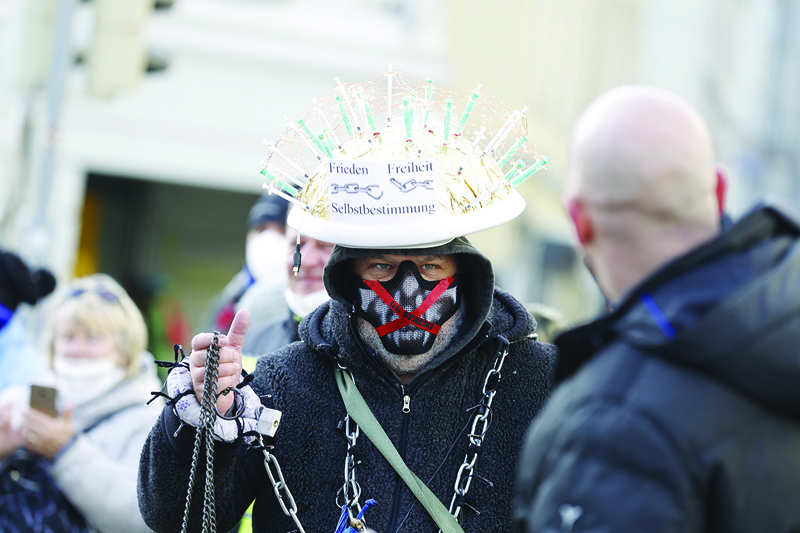GENEVA: The Omicron coronavirus variant is more transmissible than the Delta strain and reduces vaccine efficacy but causes less severe symptoms according to early data, the World Health Organization said yesterday. The Delta variant, first identified in India earlier this year, is responsible for most of the world's coronavirus infections.
But South Africa's discovery of Omicron - which has a large number of mutations - last month prompted countries around the world to impose travel bans on southern African countries and reintroduce domestic restrictions to slow its spread. The WHO said Omicron had spread to 63 countries as of Dec 9. Faster transmission was noted in South Africa, where Delta is less prevalent, and in Britain, where Delta is the dominant strain.
But it stressed that a lack of data meant it could not say if Omicron's rate of transmission was because it was less prone to immune responses, higher transmissibility or a combination of both. Early evidence suggests Omicron causes "a reduction in vaccine efficacy against infection and transmission", the WHO said in a technical brief. "Given the current available data, it is likely that Omicron will outpace the Delta variant where community transmission occurs," it added.
Omicron infections have so far caused "mild" illness or asymptomatic cases, but the WHO said the data was insufficient to establish the variant's clinical severity. South Africa reported Omicron to the WHO on Nov 24. Vaccine manufacturers Pfizer/BioNTech last week said three doses of their jabs were still effective against Omicron. Countries with sufficient vaccine supplies such as Britain and France have encouraged their populations to receive a third "booster" jab to fight Omicron.
Britain yesterday announced additional measures to stop the spread of the Omicron coronavirus variant, including the extension of booster jabs to people over 30. From tomorrow, fully vaccinated contacts of people who test positive for COVID-19 will be required to take daily lateral flow tests for seven days. But those who have not had one or two shots of a COVID vaccine will have to self-isolate for 10 days, the Department of Health and Social Care said.
"The Omicron variant is quickly gaining ground in the UK and is expected to become the dominant strain by mid-December," said Health Secretary Sajid Javid. "We are taking this proportionate and more practical measure to limit the impact on people's day-to-day lives while helping to reduce the spread of Omicron." Britain is banking on vaccination as the best way to stop the rapid spread of the virus - and keep the economy open - with concern that hospitals could be overwhelmed as they also deal with seasonal respiratory infections such as flu.
Javid said anyone eligible for a booster should get it as soon as possible. The government has set itself a target of giving everyone aged 18 and over a booster jab by the end of January. The over-30s can get a third dose of a vaccine from next week. The government in London sets policy for England only. Health is a devolved matter for the governments in Scotland, Wales and Northern Ireland.
The announcement adds to new proposals from Prime Minister Boris Johnson to combat Omicron, including a return to home-working, and the possible introduction of vaccine passports in certain settings. MPs vote on the proposals tomorrow, with Johnson facing a potentially sizeable rebellion from his own Conservative members. The vote, though is likely to pass with Labour support.
Britain - one of the worst-hit countries by COVID-19 with more than 146,000 deaths - began its mass vaccination campaign just over a year ago. Infection rates remain stubbornly high at about 50,000 positive tests per day. Yesterday, government minister Nadim Zahawi said the first people with Omicron had been taken to hospital, just over two weeks after the variant was detected in Britain. In London, Omicron is now responsible for about a third of all COVID-19 cases. - AFP


